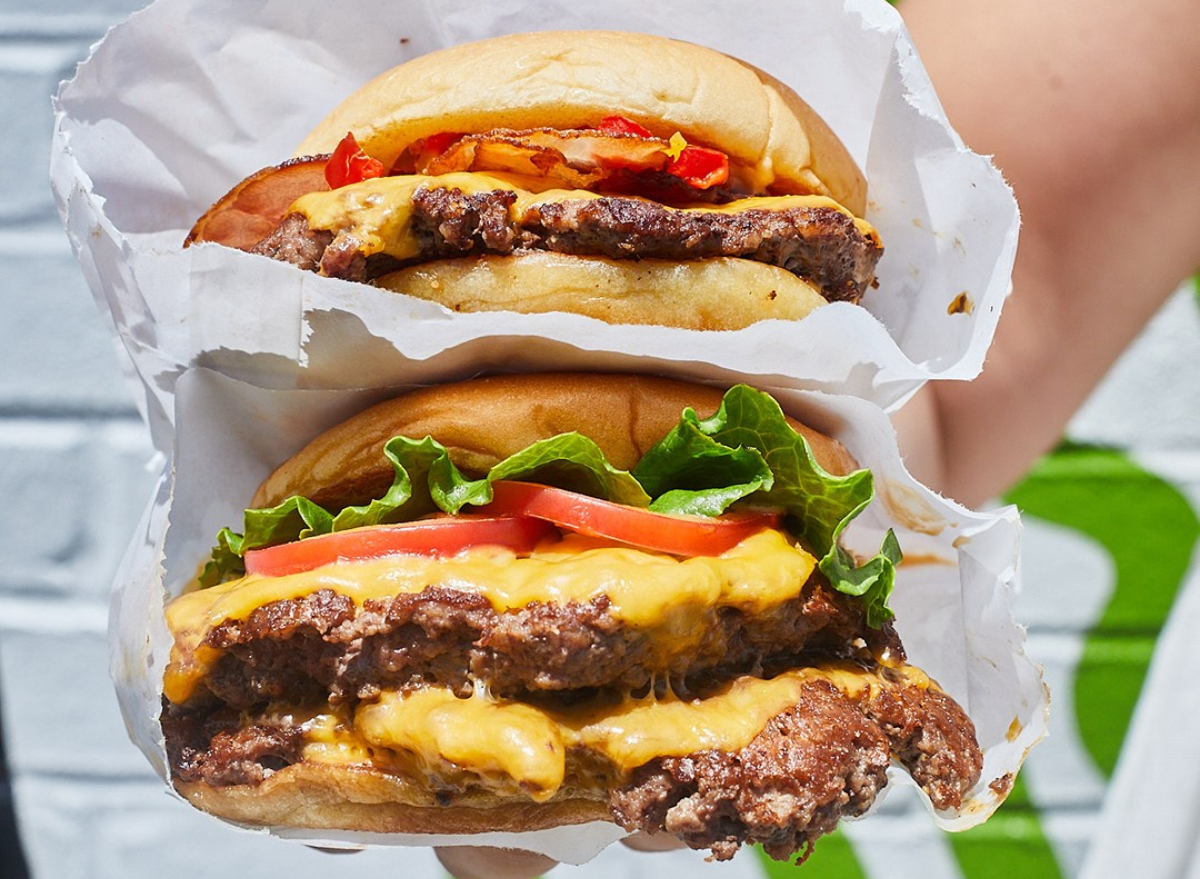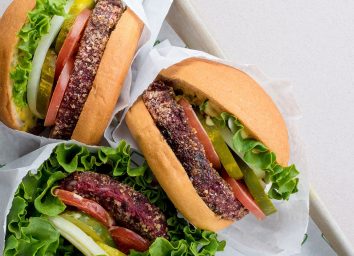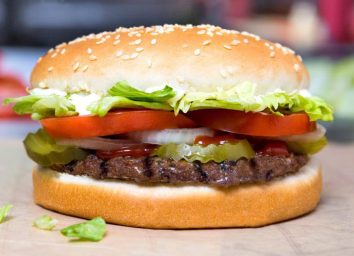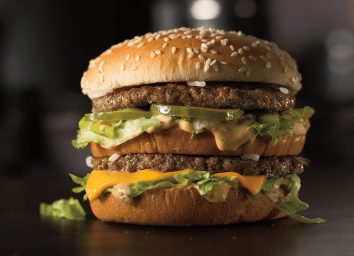This Beloved Burger Chain Continues to Struggle Due to Its Restaurants’ Locations
We all know the famous saying about New York City: “If you can make it here, you’ll make it anywhere.” But for the popular burger chain Shake Shack, that kind of city dream might not be cutting it anymore. As the pandemic continues, the burger slinger is lagging behind precisely thanks to its focus on urban areas.
The company began as a small stand in Madison Square Park in 2001, and has largely stuck to city locations in the decades since. The result? Pre-pandemic, Shake Shack’s brand was sleek and youthful, exhibiting an almost elite air. It was a place where city-dwellers swung through on their way home from the office, snagging a burger while in a suit. But as work-from-home continues and people move away from cities, Shake Shack’s business model is flailing.
For more fast-food news, check out 8 Worst Fast-Food Burgers to Stay Away From Right Now.
During its most recent earnings call, the chain reported fourth-quarter sales slightly above 2019 levels, but the differences in performance were significant when the location was taken into account. The chain’s suburban restaurants were actually up by 9% in sales, while its urban locations—which comprise the majority of its footprint—reported losses of 4% compared to 2019 levels. The chain has also faced obstacles due to Omicron-infected staff, which contributed to overall disruption on their path to recovery for the urban locations.
Shake Shack is planning to open dozens of new restaurants in the suburbs this year—complete with a fancy and efficient new drive-thru design. However, the company recently told investors that the majority of those openings would now take place toward the end of the year. In the meantime, the chain will raise prices by 3 to 3.5% in March, which comes on top of another similar increase last October.
The chain is not alone in bumping the prices—chains including Chipotle Mexican Grill and McDonald’s have made similar moves.
“We raised prices in October and we saw a pretty good reception to that price increase,” said Shake Shack CFO Katherine Fogertey. “But it is a risk.”
Ultimately, according to CEO Randy Garutti, the brand remains optimistic about their growth despite Omicron-induced obstacles.










